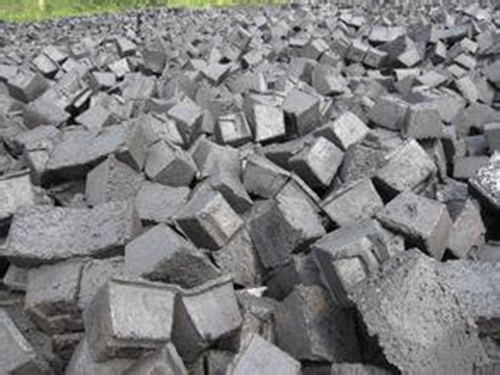Can electrode paste formulations be customized for specific applications or industries, and what factors are considered in tailoring these formulations?
Electrode paste formulations can indeed be customized for specific applications or industries, and several factors are considered in tailoring these formulations:
1. Electrode Type: Different applications require electrodes with specific properties, such as conductivity, thermal stability, and chemical resistance. The formulation of electrode paste can be adjusted to meet these requirements based on the type of electrode used in the application, whether it’s for metallurgical processes, battery manufacturing, or other industrial applications.

2.Raw Materials: The selection of raw materials plays a crucial role in customizing electrode paste formulations. Various carbonaceous materials, binders, and additives can be used in different combinations to achieve desired properties such as viscosity, adhesion, and electrical conductivity. The choice of raw materials depends on factors such as cost, availability, and performance requirements.
3.Particle Size and Distribution: Controlling the particle size and distribution of the components in electrode paste is essential for achieving uniformity and consistency in performance. Depending on the specific application, the particle size of carbonaceous materials and other additives can be adjusted to optimize electrode paste properties and enhance its effectiveness in the intended process.
4.Binder Selection: Binders are used to impart cohesion and adhesion to electrode paste, ensuring that it maintains its shape and integrity during handling and application. The type and concentration of binders can be tailored based on factors such as the desired mechanical strength, thermal stability, and chemical compatibility with the process environment.
5.Additives and Modifiers: Various additives and modifiers can be incorporated into electrode paste formulations to enhance specific properties or address particular challenges. For example, anti-oxidants may be added to improve the resistance of electrode paste to oxidation at high temperatures, while rheology modifiers can be used to control viscosity and facilitate application.
6.Process Conditions: The conditions under which electrode paste will be used, such as temperature, pressure, and atmosphere, also influence formulation customization. Formulations may need to be optimized to ensure stability and performance under the specific operating conditions of the application or industry.
By considering these factors and customizing electrode paste formulations accordingly, manufacturers can ensure that the paste meets the unique requirements of each application or industry, thereby optimizing performance and efficiency.





